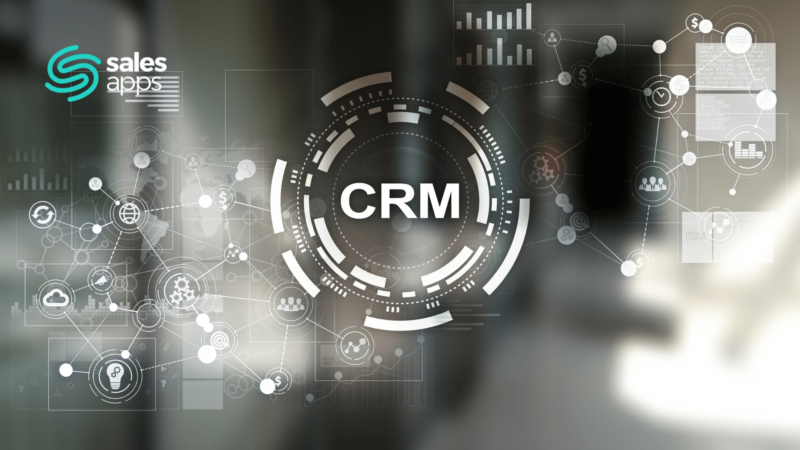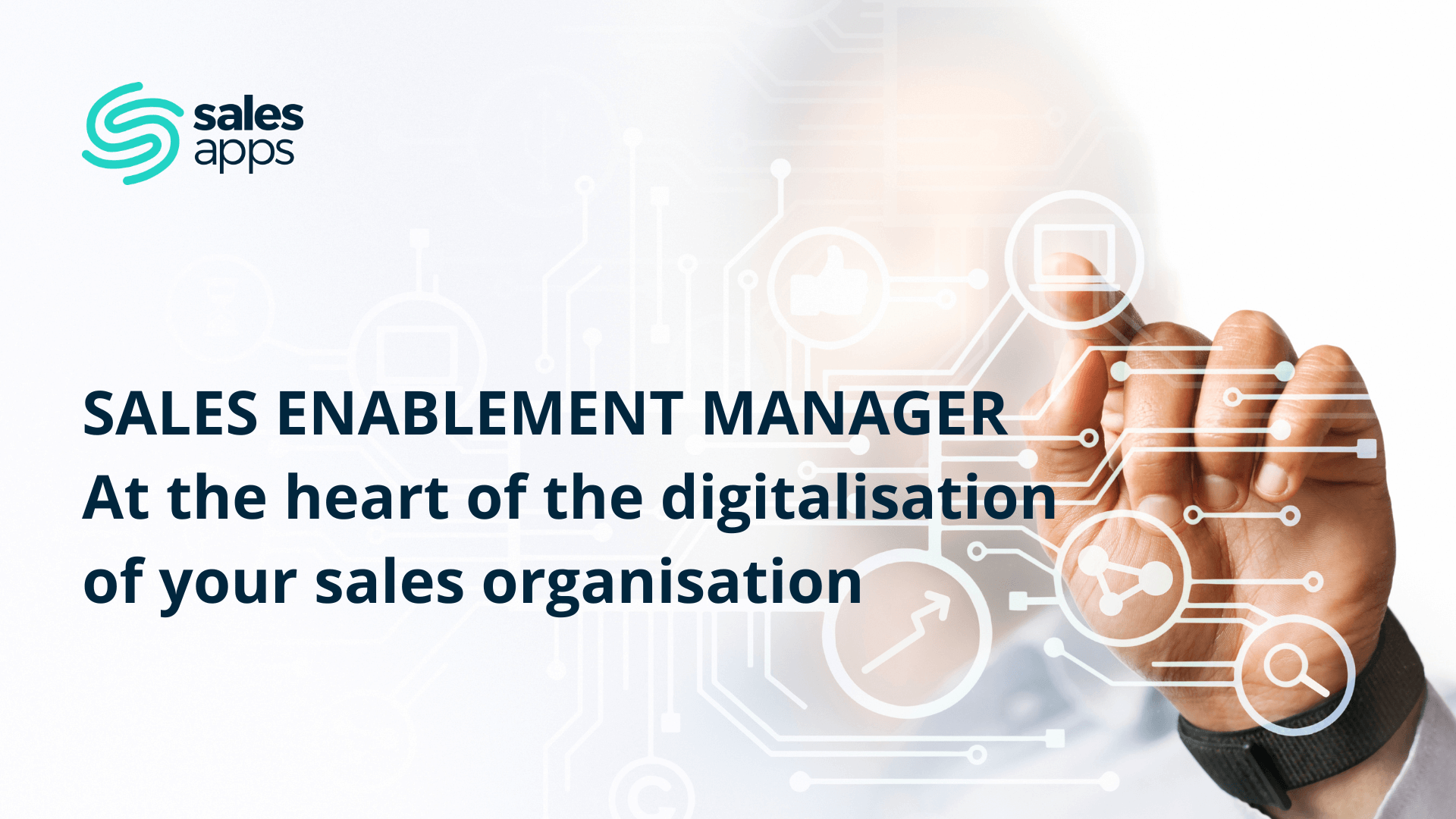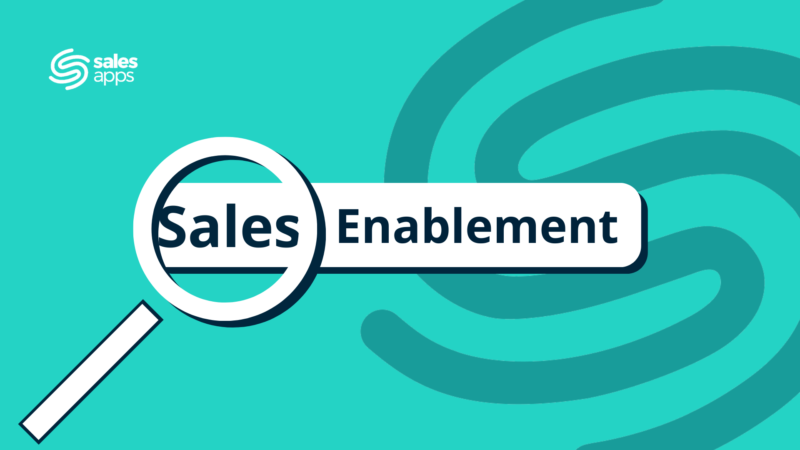
Blog
La vente B2B en 2024 : les opportunités à saisir pour booster votre activité
In Tips, Sales Enablement

B2B sales continue to evolve, offering new opportunities to companies that know how to adapt. Attracting and retaining sales reps customers, adapting to an increasingly complex sales environment, moving towards ultra-personalization and embracing artificial intelligence are just some of the challenges you need to take up to boost your business.
1 – Attirer et fidéliser les commerciaux, un enjeu stratégique pour votre entreprise
Attirer et fidéliser les commerciaux est un défi de plus en plus important pour les entreprises. Avec la pénurie de talents qualifiés dans le domaine de la vente, il est de plus en plus difficile de trouver des commerciaux performants et de les retenir. Plus de 200 000 postes de commerciaux sont à pourvoir en France, un chiffre qui illustre la grandeur du défi à surmonter. L’attractivité et la fidélisation de la force de vente constituent un enjeu stratégique pour cette année 2023. Pour y répondre, les directions commerciales et des ressources humaines doivent tout d’abord renforcer l’attractivité de l’entreprise auprès des candidats. Moderniser l’image de l’entreprise et faciliter la projection du candidat dans le cadre de sa future activité sera un atout dans votre stratégie.
Confrontées à la pénurie des profils, 97 % des directions commerciales B2B estiment que l’amélioration des compétences est leur principale priorité… et plus de la moitié d’entre elles estiment que leurs commerciaux n’ont pas les capacités nécessaires pour réussir dans les années à venir (McKinsey). Concentrer vos efforts sur l’accélération de la montée en compétence, la parfaite maîtrise des offres et la formation continue des commerciaux vous permettra de faire partie des gagnants en cette année 2023 ! Les facteurs clés dans la réussite de votre stratégie doivent s’articule principalement autour des points suivants : accélérer la montée en compétences des nouveaux entrants, développer l’autonomie & la mise en confiance du commercial, lui permettre de s’auto-évaluer et de renforcer en continu ses connaissances des offres/services, réduire le turnover des commerciaux, identifier et dupliquer le modèle de réussite des meilleurs.
Autre point d’attention avec l’étude récente de Gartner soulignant que 89% des commerciaux se sentent épuiser par leur travail. Un chiffre alarmant et non surprenant quand on sait que le commercial passe 70% de son temps sur des activités non liées à la vente et le poids de plus en plus importants des tâches administratives. Parmi celles-ci on peut citer : la recherche du contenu, la création et la personnalisation de présentations et la rédaction des comptes-rendus de visite… Il est nécessaire de faciliter la vie du commercial pour qu’il dispose de meilleures conditions pour réaliser ses objectifs et s’épanouir davantage.
2 – La vente B2B en 2024 plus complexe : comment s’adapter pour rester compétitif ?
La vente B2B est devenue de plus en plus complexe ces dernières années, et cette tendance devrait se poursuivre en 2023. Les acheteurs B2B sont de plus en plus exigeants et informés avant d’entrer en relation avec le commercial. Selon Forrester, l’acheteur réalise 57 % du parcours d’achat avant d’initier le contact avec le fournisseur envisagé. Cette situation va perdurer et se renforcer avec la digitalisation accélérée du parcours d’achat. Dans ce contexte, vous devez vous assurer que le commercial soit en mesure de créer de la valeur complémentaire en termes de contenu ainsi qu’une expérience de vente qui marque. Former et faciliter l’auto-évaluation des connaissances du commercial doit être une priorité pour 2023.
Le désir d’immédiateté, la forte personnalisation de la relation font de la vente B2B en 2023 un processus toujours plus exigeant pour les commerciaux. L’étude McKinsey a dressé les attentes des décideurs qui souhaitent pour 72 % d’entre eux une expérience d’achat cohérente sur l’ensemble des canaux. Avec la généralisation du télétravail, les interactions entre acheteurs et vendeurs s’inscriront inévitablement dans le cadre d’un environnement hybride. C’est-ce que souligne le rapport sur les tendances des ventes 2023 (Hubspot & Aircall) : 50% des représentants commerciaux s’orienteront vers un modèle hybride, 33% en personne et 17% entièrement à distance. Pour s’adapter dans un environnement hybride, le commercial a besoin d’un outil de vente simple d’utilisation qui soit tout aussi efficace en face à face qu’à distance, fonctionnant 100% offline et permettant de captiver l’acheteur lors de sa présentation commerciale.
Avec les crises que nous venons de connaître, le processus de décision et donc le cycle de vente a eu tendance à s’allonger dans les entreprises. L’acheteur B2B multiplie sa documentation en ligne et consulte les autres intervenants de la sphère décisionnelle. Il faut désormais compter en moyenne 7 personnes dans un processus d’achat d’une entreprise de 100 à 500 salariés. Le nombre d’interaction d’achat à lui aussi évolué passant de 17 en 2019 à 27 en 2021. La tendance va persister voire s’accentuer pour 2023 ! Pour rester compétitif sur votre marché, l’alignement Vente et Marketing doit être au rendez-vous ! L’équipe Marketing doit fournir au commercial des contenus pertinents, facilement accessibles et en phase avec la réalité du terrain. Le tout dans un contexte d’hyper-personnalisation et contextualisation de l’approche commerciale.
L’arrivée de la génération Z dans l’entreprise va radicalement changer la vente B2B. Oublier le discours trop commercial avec la génération Z ! Adoptez une approche plutôt conversationnelle, favorisez les contenus vidéos, plus visuels et diffuser vos messages au bon moment. Le commercial devra aussi redoubler de créativité dans son approche et structurer son discours pour mieux hooker ce profil.
3 – L’ultra-personnalisation : la nouvelle étape de la vente B2B en 2024
More informed and more demanding, the buyer expects added value and a real level of expertise from the salesperson. They want the sales person to be aware of their issues, to be able to adopt a personalized approach to their needs and to provide them with a real value proposition. This requires the sales person to better prepare for meetings, to have a better understanding of the customer's business and challenges, and to be able to listen and adapt more effectively.
Personalization is no longer an option, and seems to be relatively well integrated by sales reps. In 2023, ultra-personalization will gradually take over. According to LinkedIn, 73% of sales reps customers say they do more research on their prospects before contacting them. Salespeople will need to mobilize all the data they need to personalize and contextualize their approach. It will no longer be possible to ignore data! Companies without a framework for operationalizing data analysis by 2024 will be at least 2 years behind in all their tactical initiatives (Gartner). Marketing & sales managers are aware of the stakes, even if there is still a great deal of work to be done on the quality of the data collected. 40% of marketers believe that poor data quality is a major obstacle to the buying experience and the personalization effort demanded by the B2B buyer (Experian).
4 – L’IA pour améliorer votre efficacité commerciale
L’IA est un outil de plus en plus important pour les commerciaux, et cette tendance devrait également se poursuivre en 2023. L’IA aide à comprendre les comportements de l’acheteur, à identifier les opportunités de vente et à améliorer l’efficacité du commercial. Cette technologie deviendra sans aucun doute un “must have” dans l’accompagnement du commercial au quotidien. Les cas d’utilisation de l’IA sont quasi infinies, elles vont déjà avec des succès encore plus ou moins en probants du nettoyage des données du CRM, à l’analyse conversationnelle en passant par l’optimisation du rendez-vous. Ainsi, l’IA peut suggérer des contenus marketing au commercial pendant la préparation des rendez-vous. Cette suggestion est possible car basée sur des expériences précédentes analysées par l’IA et la connaissance qu’elle possède sur l’acheteur (typologie de l’acheteur, structure de l’entreprise dans laquelle il travaille, le degré de maturité sur le sujet, le secteur de l’activité de l’entreprise…). Elle peut aussi s’avérer redoutable quand il s’agit de faire de l’up selling ou cross selling en identifiant le moment opportun pour présenter le contenu sur un produit spécifique.
Malgré tous ces avantages, l’IA n’a pas vocation à remplacer les commerciaux B2B mais bien les accompagner. La vente reste avant tout une activité relationnelle, et les commerciaux seront toujours nécessaires pour établir des relations de confiance avec les acheteurs. Cependant, en utilisant l’IA de manière stratégique, les commerciaux pourront non seulement améliorer leur efficacité, mais également offrir une expérience de vente encore plus personnalisée et adaptée aux besoins de l’acheteur.
In summary, the outlook for B2B sales in 2023 will be heavily influenced by the shortage of skilled talent, the increasing complexity of B2B sales, the personalization of the sales relationship, and the increasing adoption of AI. To succeed, sales and marketing departments will need to equip the sales force with a Sales Enablement application to boost the performance of their sales organization.





